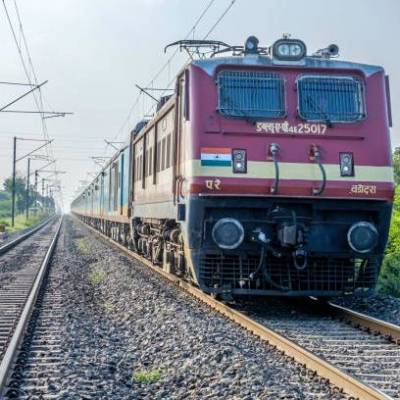

Indian Railways is making significant advancements by introducing 130km/h Electric Multiple Units (EMUs) that prioritize speed, affordability, and passenger comfort. These new non-air-conditioned trains will offer a cost-effective solution for daily commuters and facilitate efficient travel across the country's expansive rail network.
The decision to launch 130km/h EMUs without air conditioning is a strategic move by Indian Railways. As electrification efforts continue to expand rapidly, these trains will help meet the growing demand for faster travel while maintaining cost-effectiveness. By eliminating air conditioning, Indian Railways aims to reduce manufacturing costs, allowing for increased production and affordability, ultimately benefiting the customers.
One of the primary advantages of these non-AC EMUs is their ability to reach speeds of 130km/h. By delivering faster journeys, Indian Railways seeks to provide improved connectivity and save travel time for passengers. These trains will cater to both long-distance and suburban routes, offering a swift and efficient option for daily commuters and travelers alike.
Despite the absence of air conditioning, Indian Railways ensures that passenger comfort remains a priority. The non-AC EMUs will be equipped with advanced ventilation systems and comfortable seating arrangements, ensuring a pleasant travel experience even during hot weather conditions. This approach strikes a balance between providing a comfortable environment for passengers and reducing the overall cost of travel.
The introduction of 130km/h non-AC EMUs aligns with Indian Railways' commitment to promoting sustainable and environmentally friendly modes of transportation. These trains significantly reduce carbon emissions compared to conventional diesel locomotives, contributing to India's efforts to combat climate change and air pollution.
Moreover, by focusing on cost-effectiveness, Indian Railways aims to make train travel accessible to a wider range of passengers. This initiative will particularly benefit daily commuters, who will have an economical alternative for their everyday journeys. It also promotes the use of public transportation, reducing traffic congestion and further enhancing the overall travel experience.
In conclusion, Indian Railways' introduction of 130km/h non-AC EMUs marks a significant step towards faster, cost-effective, and environmentally friendly travel options. While prioritizing efficiency and affordability, the initiative also ensures passenger comfort through advanced ventilation systems and comfortable seating arrangements. With these advancements, Indian Railways is poised to transform the future of rail travel in the country, benefiting commuters and the environment alike.